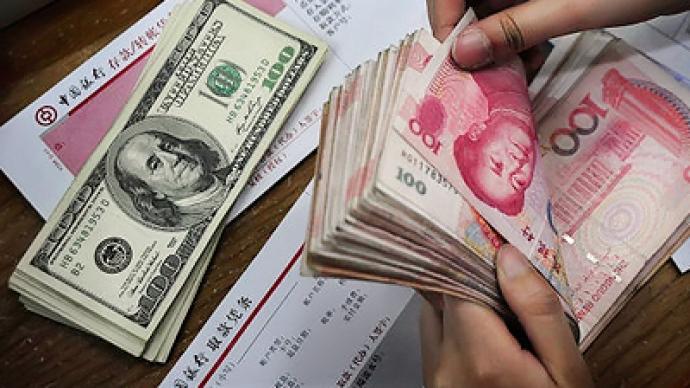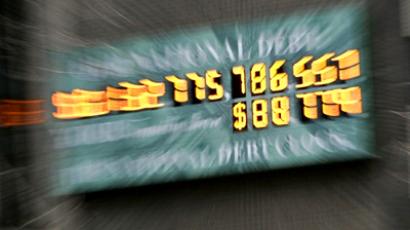US dollar should be replaced by new global reserve – leading economist

With the US economy remaining weak, and with budget woes hitting confidence in the US dollar, talk about a new global reserve currency is mounting.
Professor Joseph Stiglitz a Nobel prize-winning economist of 2001 agrees that the world economy needs a new global reserve currency to help prevent trade imbalances that are reflected in the national debt of the US.RT:Speaking of non-functioning, well, what about the US dollar? You are someone who is calling for a new reserve currency. But why? Some say “what is the alternative”?Joseph Stiglitz: What I’ve argued for is the creation of a global reserve currency. Reserve currencies are, you might think of a store value and the dollar has been very unstable – understandable given the difficulties of the American economy, our performance was not a stellar. But the fact that in a modern globalized economy, 21st Century, it is an anachronism that a single currency would play the pivotal role that the dollar has played. What I argue in my book “Making Globalization Work” is that the dollar reserve currency system contributes to inequality … and it actually contributes to the weakening of the global economy, because countries are setting aside literally hundreds of billions of dollars, you might say, of precautionary savings. That’s money not spent.RT: So, you are saying essentially it hurts everybody to have the US dollar as a reserve currency?JS: That is right. What I’ve described in the UN commission I chair, explains how we can create a global reserve currency. It is really interesting to be here at Bretton Woods talking about that because Keynes argued for this 75 years ago. In the aftermath of the Great Depression he understood how the links between the UK’s problem, UK being the reserve currency then, and that if we are going to have global economic stability we needed to move off of a single country being the reserve currency. Bretton Woods failed from his perspective, in this respect. RT:And didn’t the US disagree and say “we want to be main reserve currency” and got their way? So, would the US have that same power, if world leaders got together today for another Bretton Woods conference?JS: I think that if that same meeting were held here in Bretton Woods…the world is markedly different. China has close to $3 trillion of reserves, about a third of the global reserves, about $9 trillion. If you own $3 trillion you have some voice in what kind of reserve currency system you want to have. And China has been very clear that it worries about the current dollar-based reserve system right after our UN commission came out and supported it, China supported it, France supported it, Russia supported. So there is a wide understanding of the importance of this idea. And I think if the global economy remains weak, there will be more interest as one of the remedies to the current instability and weakness in the global economy.













